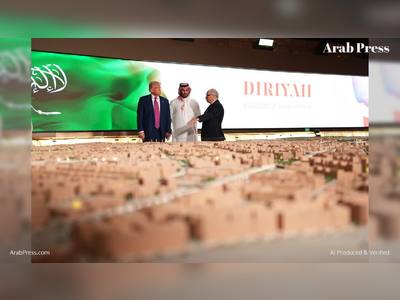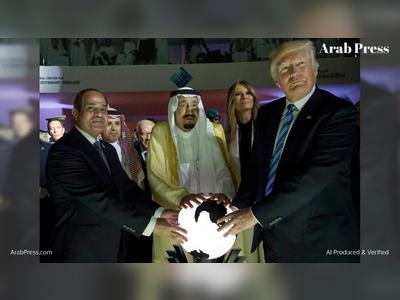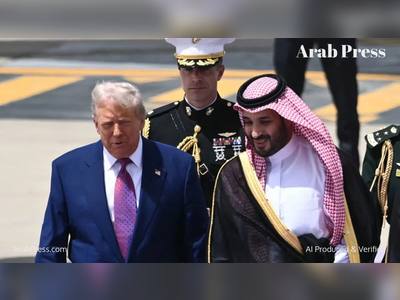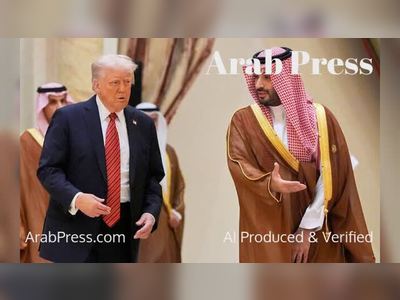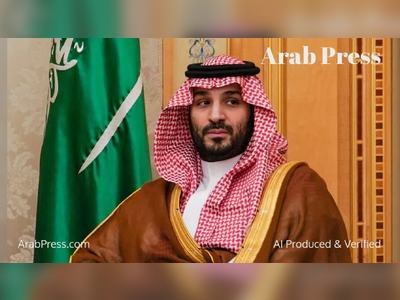Israel Presses U.S. to Tie Saudi F-35 Sale to Formal Normalisation
Jerusalem signals it will accept sale of F-35 jets to Riyadh only if diplomatic ties with Israel advance
Israeli officials have conveyed to the U.S. administration that any potential sale of F‑35 Lightning II fighter jets to Saudi Arabia must be conditioned on progress towards normalisation of Saudi-Israeli relations.
According to a statement provided to the U.S. media, the Israeli side asserted that the “supply of F-35s to Saudi Arabia needs to be subject to Saudi normalization with Israel.”
While not outright opposing the transfer of advanced jets to the kingdom, Israel’s security establishment is insisting that the deal be embedded within a strategic regional framework, such as the Abraham Accords.
One Israeli official noted that if Saudi Arabia were to acquire the F-35, stationing the aircraft in the western kingdom would be a “non-starter,” given the proximity to Israeli airspace.
The proposed sale—reportedly up to forty-eight aircraft—has already progressed through a key internal review at the United States Department of Defense.
A final decision still rests with the U.S. president and Congress.
In remarks to reporters aboard Air Force One, Donald Trump said: “They wanna buy a lot of jets … they have asked me to look at it.”
The timing of Israel’s stance comes ahead of a planned White House meeting between Trump and Saudi Crown Prince Mohammed bin Salman.
The two are expected to discuss a broader U.S.–Saudi defence and economic agreement, which could incorporate the jet deal.
Meanwhile, U.S. intelligence assessments are raising concerns that the F-35’s advanced stealth and sensor systems could be compromised, particularly given Riyadh’s expanding security links with China.
Jerusalem’s strategy reflects its priority to preserve its qualitative military edge in the Middle East whilst opening new regional security frameworks.
By insisting on normalisation as a pre-condition, Israel aims to ensure that any transfer enhances, rather than undermines, the existing strategic balance.
With formal approvals still pending and conditioned on diplomatic rather than purely military factors, the future of the deal remains closely watched across capitals.
According to a statement provided to the U.S. media, the Israeli side asserted that the “supply of F-35s to Saudi Arabia needs to be subject to Saudi normalization with Israel.”
While not outright opposing the transfer of advanced jets to the kingdom, Israel’s security establishment is insisting that the deal be embedded within a strategic regional framework, such as the Abraham Accords.
One Israeli official noted that if Saudi Arabia were to acquire the F-35, stationing the aircraft in the western kingdom would be a “non-starter,” given the proximity to Israeli airspace.
The proposed sale—reportedly up to forty-eight aircraft—has already progressed through a key internal review at the United States Department of Defense.
A final decision still rests with the U.S. president and Congress.
In remarks to reporters aboard Air Force One, Donald Trump said: “They wanna buy a lot of jets … they have asked me to look at it.”
The timing of Israel’s stance comes ahead of a planned White House meeting between Trump and Saudi Crown Prince Mohammed bin Salman.
The two are expected to discuss a broader U.S.–Saudi defence and economic agreement, which could incorporate the jet deal.
Meanwhile, U.S. intelligence assessments are raising concerns that the F-35’s advanced stealth and sensor systems could be compromised, particularly given Riyadh’s expanding security links with China.
Jerusalem’s strategy reflects its priority to preserve its qualitative military edge in the Middle East whilst opening new regional security frameworks.
By insisting on normalisation as a pre-condition, Israel aims to ensure that any transfer enhances, rather than undermines, the existing strategic balance.
With formal approvals still pending and conditioned on diplomatic rather than purely military factors, the future of the deal remains closely watched across capitals.


